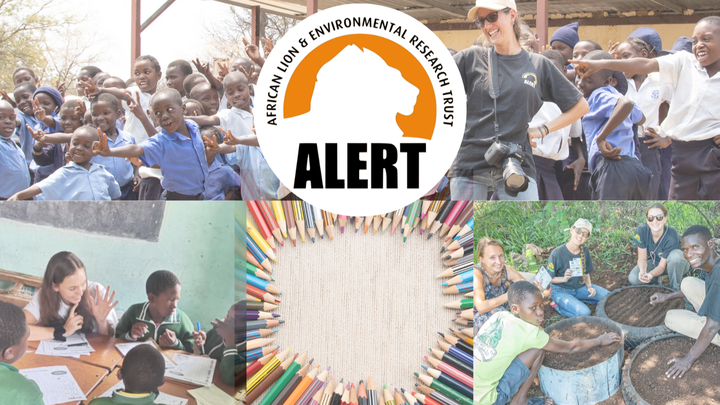
Teaching Locals the Importance of Conservation
Tax deductible
- Conservation Education
Conservation Education is the process of influencing people’s attitudes, emotions, knowledge and behaviors about wildlife and wild places. This strategy towards conservation of natural resources was first used in the year 1984 at the International Unit for the Conservation of Nature and Natural Resources Conference that was held in Paris. In the year 2005, the United Nations declared the decade of 2005–2014 as a decade dedicated towards sustainable development education. This simply showed how important conservation education is towards the conservation of natural resources.
According to UNICEF data, only about 15% of children in Zimbabwe complete upper secondary school. This shows the importance of putting efforts in the education of younger generations. As many of the rural schools are underfunded, they are struggling with basic learning material, accessibility to teachers and some learning areas do not receive the necessary attention. One of these being conservation education. In many schools, children do not learn about environmental stewardship which can be the consequence of increasing crimes including land degradation, veldt fire outbreaks, deforestation and poaching. Conservation Education of the younger generations plays a vital role in the future protection of our ecosystem. Many of these communities and hence the school children live near protected areas. Teaching them early on and showing them the importance of conservation will lead to more conscious locals willing to protect their surroundings and the wildlife that lives in it.

- ALERT’s Aim
ALERT (African Lion & Environmental Research Trust) plans to hold two larger Conservation Workshops, a “field trip” like activity to show children in a fun and interesting environment, the importance of the ecosystem. Furthermore, ALERT has developed its own conservation syllabus that we plan to implement in all local schools we are supporting. Our conservation syllabus also falls under a “Reforestation Project” whereby we jointly with school children, plant various new trees in their community and show them why this is such an important activity.
Conservation education lessons will be conducted using a custom made curriculum which will suit the current environmental issues, at hand globally and at a local scale. Lessons will involve education outside the classroom, using the natural environment to experience life, adventure education; global education, having a broader view on environmental themes; issues of poverty, communication, problem-solving and actions, solving social and environmental problems.
The Mkoba Primary School and Julena Primary School based in Gweru have ongoing needs and problems linked to the number of students and the relatively small capacity of the educational facilities, resources and staff. Classroom assistance, educational resources, and the introduction of Book Clubs and Maths Clubs, would help this school achieve its aims. ALERT plans to provide classroom assistance, educational resources, material and financial support to both primary schools. This will be done with the support of international volunteers, who will aid the teachers in the classroom by giving students individualized attention.

- Benefits for Students
Improving Academic Achievement.
Conservation education improves test scores by providing students with engaging lessons about the natural world that can be applied to all subject areas and grades. Compiled by the Human Wildlife Conflict Mitigation & Conservation Education Desk ALERT 2018
Improving Student Health.
Conservation education gets students outdoors and active, and helps to address common health and personal hygiene issues.
Supporting STEM.
Conservation Education offers an engaging platform for gaining and applying knowledge and skills in science, technology, engineering, and mathematics (STEM) as it will take an innovative approach towards solving environmental issues.
Meeting 21st Century Needs.
Conservation Education will emphasize on critical skills essential for succeeding in tomorrow’s world, such as questioning, investigating, defining problems, analyzing, interpreting, reasoning, developing conclusions, and solving problems.
Cultivating Leadership Qualities.
Conservation Education through inter-schools activities such as debates, quiz competitions and public speaking emphasizes cooperative learning with others, critical thinking and discussion, and a focus on action strategies with real-world applications.
Improving Focus and Cognition.
Conservation Education will increase the ability of students to focus and improve their cognitive abilities. Children with attention-deficit disorder also benefit from more exposure to nature–the greener a child’s everyday environment.
- Budget
https://docs.google.com/spreadsheets/d/1IVhc1AxNbhO0IMlE2EpFwLNlE8rBVfUZ0sW49fZ87j0/edit?usp=sharing
Organizer
Cecilia Rosen
Organizer
Los Altos, CA
African Lion & Environmental Research Trust (Alert)
Registered nonprofit
Donations are typically 100% tax deductible in the US.


